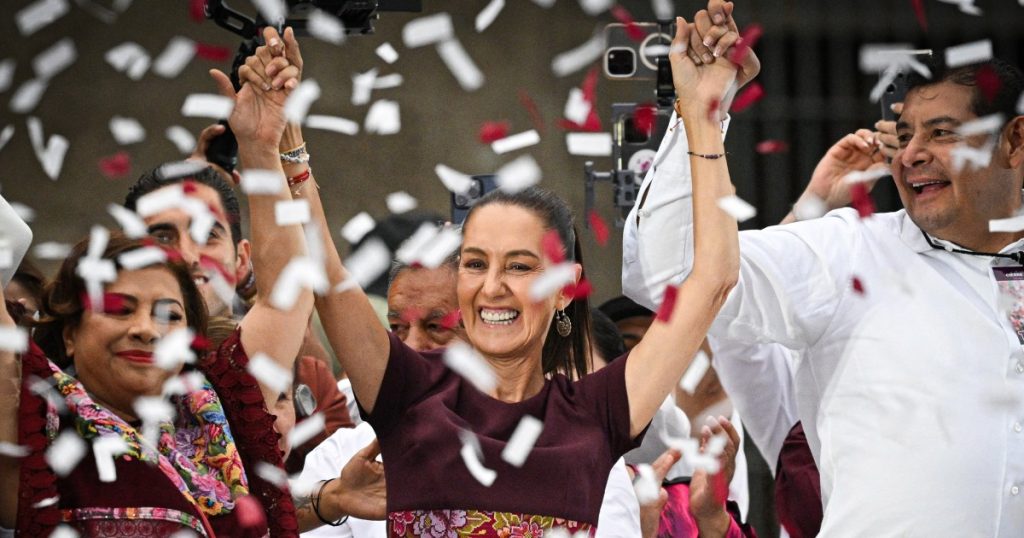Claudia Sheinbaum has made history by becoming the first woman elected president of Mexico, winning between 58.3% and 60.7% of the vote according to projections from a quick count. She addressed her supporters by emphasizing that she did not achieve this milestone alone and promised to work towards building a diverse and democratic Mexico. Sheinbaum, a physicist and climate scientist, will serve one six-year term starting on Oct. 1, making her Mexico’s first president of Jewish heritage. She is a member of the Morena party and is expected to prioritize resolving issues such as immigration, foreign affairs, and determining the future of the trade deal with the U.S.
The quick count projected a voter turnout of about 60%, and Sheinbaum is likely to follow the policies of her mentor, outgoing President Andrés Manuel López Obrador, who founded the Morena party. She has promised to continue the welfare policies and social programs that have helped Morena maintain a strong approval rating from voters. Despite the country’s high levels of violence, Sheinbaum plans to continue López Obrador’s “hugs, not bullets” policy of not directly confronting criminal organizations, in an effort to reduce the number of reported homicides. Although this strategy has not significantly improved safety in the past six years, Sheinbaum is open to exploring new approaches to combating violence.
Sheinbaum has advocated for a greater use of renewable energy, signaling a slight departure from López Obrador’s stance on environmental issues. Her political career began in 2000 when she became Mexico City’s environment chief under López Obrador, later serving as his chief spokesperson during his 2006 presidential bid. She then went on to be elected to run Mexico City’s largest borough, Tlalpan, before making history as the city’s first female mayor. Coming from a scientific background with a Ph.D. in environmental engineering, Sheinbaum’s commitment to science and politics has been shaped by her parents, who instilled in her a love for both disciplines.
Growing up in Mexico City, Sheinbaum participated in activism from a young age, volunteering to help groups searching for missing children and becoming involved in student movements in the 1980s. She earned her doctorate in energy engineering in 1995 and went on to join the United Nations’ Intergovernmental Panel on Climate Change, receiving a Nobel Peace Prize in 2007 for her contributions. As the first woman to hold the highest political office in Mexico, Sheinbaum’s victory marks a significant milestone for gender equality in the country and reflects her dedication to creating positive change through science, politics, and advocacy for renewable energy.


